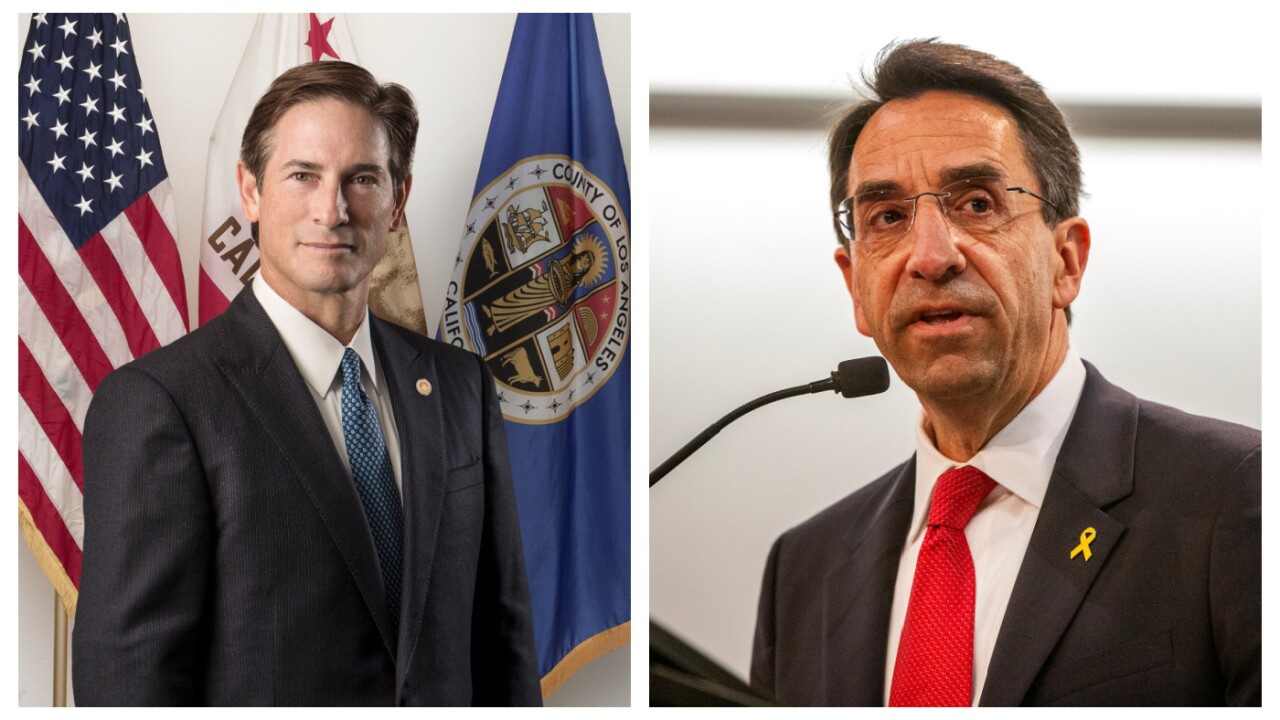There is no shortage of competition for small businesses in Atlanta.
As giants like NationsBank Corp., First Union Corp. and Wachovia Corp. and local BankSouth dominate branches and ATMs, Bill Blanton has just one branch and no 24-hour bank machines.
But he has something that has transformed his First Capital Bank, a $72-million-asset bank in Norcross, Ga., into a growing niche player in the tough small business market: an active board of directors populated by small business owners.
The president and CEO of the former First Gwinnet Bank says his board is as critical as his bankers and word-of-mouth from customers in helping his company focus on becoming what he calls a "mini-wholesale bank," catering exclusively to Atlanta-area small business.
"Chemistry seems to be almost everything in this industry," said Mr. Blanton, known locally as a turnaround artist. "This is the best board I've ever worked for."
(He helped rebuild other banks, most notably Investors Bank and Trust of Duluth, Ga., which was bought out for a healthy 3.4 times book value one year after returning to health. Mr. Blanton won't say if a redux is in the works.)
The 13-member board is comprised of people who own and operate their own businesses.
As peers of their bank's customers, they can relate to the credit and service needs of the bank.
Mr. Blanton says the board is good not only for advice, but in helping to market the bank as well.
His is a bare-knuckled strategy in the fight against regionals and nonbanks for the hearts and wallets of small-business customers once controlled largely by small banks.
But it is a strategy that hardly ends with his own board's referrals.
Mr. Blanton said the bank also has gotten marketing leverage from existing customers. In fact, referrals have been so strong that the bank will roll out its first marketing campaign next year.
That effort, based on a detailed database, will narrowly target about 1,500 companies in the area and is the responsibility of everyone in the bank.
"It will take a concerted effort on the part of the board and on the part of employees to market to these customers," he said.
To keep those referrals coming in the meantime, Mr. Blanton said the bank engages in "cross-pollination" of its customer base.
Customers get to know each other at bank-sponsored lunches or through one-on-one contact coordinated by a First Capital banker.
But getting a customer in the door has been the easy part. It's what the big banks like Nations- Bank and First Union do all the time.
It's keeping them there that is the important and profitable part.
"What makes somebody come here is the referral from a board member or a customer," Mr. Blanton said. "What keeps them here is that we genuinely try to understand their business."
He admits the bank has lost customers to the big banks on price, but says many eventually return frustrated by poor service.
While he is less than complimentary of his larger rivals, Mr. Blanton admits that quick responses from the likes of NationsBank has forced him to consider new options like credit scoring so his bank can give would-be borrowers fast answers.
It is not just the big ban s that he has to look out for.
The Atlanta market is one of the most hotly contested community bank markets in the Southeast, with several dozen smaller banks targeting the same business customers as the multi-billion dollar banks.
However, Steve Johnson, owner of the Atlanta-based consultancy T. Stephen Johnson & Associates, said First Capital has found a niche that other banks have neglected.
"Bill's bank has jumped in and, not only done a good job serving the customers, but it has been really profitable doing it," he said. The bottom line result so far: First Capital has a 1.5% return on average assets that is rising.
The bank focuses on the four core counties of metro Atlanta. Within that market, the targets are companies with sales between $2 million and $10 million a year.
The companies are primarily in the distribution, wholesale, manufacturing and professional services industries.
To keep things simple, the bank offers four basic products: SBA-backed loans, commercial and industrial loans, asset-based lending on receivables and inventory, and real estate construction and development loans.
Despite the narrow focus, the bank does move cautiously where others push ahead. For example, many Atlanta banks have boosted their real estate lending in the past year between 25% and 100%.
First Capital has not added any new loans in this area. In fact, the bank shed nearly 5% of its assets last year after a 1992 merger with Paces Bank and Trust of Atlanta.
That's not to say the bank is stodgy.
"It's not uncommon for us to look at a loan that has been turned down by the other banks," Mr. Blanton said. "We'll be a lot more amenable to structure a loan for these companies than the other banks so long as the credit quality is there."
And while other banks are stressing ATMs and extended hours as the cutting edge of service, First Capital has only one branch and no ATMs.
A second branch, acquired in its 1993 merger is being closed. The bank is closed on Saturday and open only until 6 p.m. during the week
It is a strategy that flies in the face of the big bank's conventional wisdom that convenience is critical.
Mr. Blanton would not argue with that, but says he does not need more locations because nearly half of all deposits are handled by courier and wire transfer.
Besides, the Georgia banker points out, clients have all the access they need. "They can reach me at home 24 hours a day," he said.





